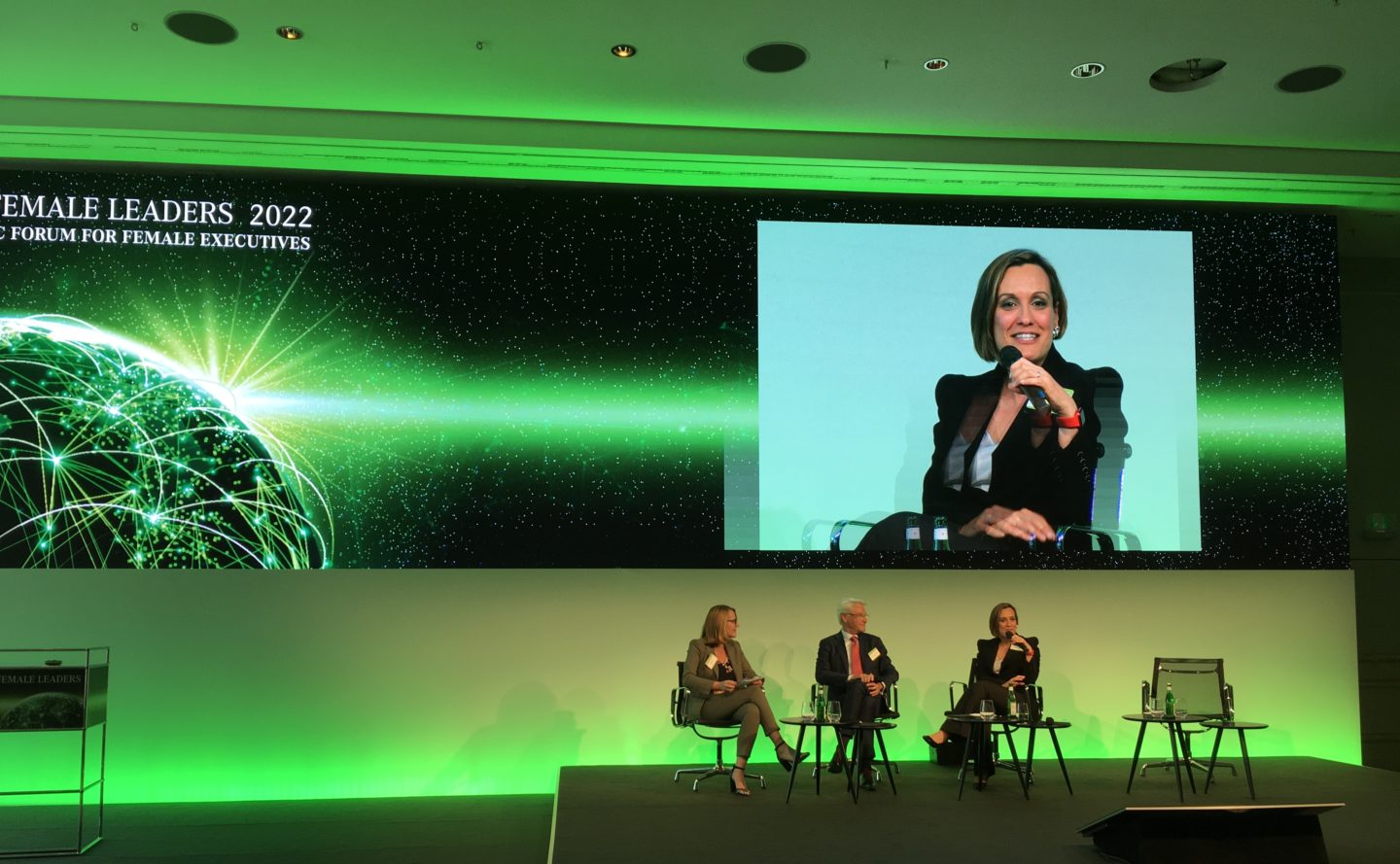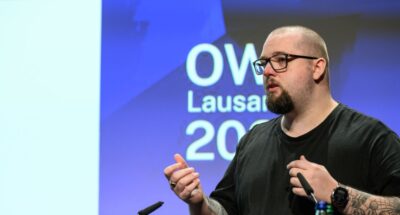
The critical cybersecurity lesson from the Microsoft outage
The IT debacle is a big reminder that cybersecurity is not just about defending against malicious attacks but also about ensuring system availability. ...

Published 16 May 2022 in Technology • 5 min read
With consumers increasingly worried about privacy and data protection, organizations are under ever greater pressure to establish trust and transparency in data and information systems, with new regulations such as the EU’s GDPR raising the prospect of harsh financial penalties for compliance failures.
Digital ethics is also growing in importance to organizations, given concerns about how companies are using artificial intelligence (AI) to make opaque decisions with major ramifications for society.
Restoring trust in information systems was the central theme of an executive panel discussion at Global Female Leaders 2022, a conference involving Öykü Işık, Professor of Digital Strategy and Cybersecurity at IMD.
A big part of the solution, she said, is to strengthen digital governance from a regulatory perspective. But companies must also ensure effective internal governance surrounding the processing of sensitive information.
Işık pointed to a broader digital responsibility for organizations to understand the impact of technologies on society, noting the potential for AI to displace vast swathes of the global labor force. “This must be a prerequisite; managers as well as consumers must have a basic understanding of how technology works,” she said.
Yet levels of awareness are still low because of the opacity surrounding the decisions companies have reached through AI, given just how complex machine learning is becoming.
Işık highlighted the ethical challenges by using real-world examples, such as Amazon’s ‘sexist’ AI recruiting tool that showed bias against women, and an algorithm that Uber used to verify drivers’ identity that was allegedly biased and led the ride-hailing firm to unfairly dismiss drivers.
She also cited a scandal that engulfed the Dutch government recently after the country’s tax authorities, trying to spot fraud among people applying for childcare benefits, used an algorithm that penalized certain families.
The examples underscore the potential negative implications of automated systems without the right safeguards in place, she said.
We need to make algorithms transparent and explainable; AI is a black box. We have a responsibility that if we are applying this in our organizations, there are things we should do to debias the data sets and the software development process. We also need someone watching over these systems.
Further, Işık underscored the importance of enhancing companies’ digital resilience to cyber-attacks. She noted a significant shift in thinking about the subject, from building great firewalls to keep hackers out, to accepting that a cyber breach is inevitable and focusing on damage limitation.
Another crucial aspect that businesses often get wrong is communication around a breach, she added. “There are technical elements and leadership implications as well. A resilient organization has this mindset that regulations are coming around cybersecurity and AI, just like regulations on data protection and privacy did. So how can I be prepared as much as I can about this changing landscape of technology?”
Her co-panelist was Bertrand de La Chapelle, co-founder and executive director of the Internet & Jurisdiction Policy Network. He underscored the importance of data governance, a problem which has only been amplified by digital technologies.
The deluge of data and misinformation, and the vast array of connections enabled by the internet, is making it harder than ever for policymakers and regulators to understand the world. He said rising to this challenge will require greater coordination between all actors (public, private and civil society) at a time when society has never looked more polarized.
“There’s a need for global dialogue and innovation,” de La Chapelle said, as he highlighted his recent launch of a ‘Datasphere Initiative1’ with the mission to “responsibly unlock the value of data for all”. “This century is the century of data,” he said. Current estimates suggest at least 2.5 quintillion bytes (a billion billions) are produced every day.
While de La Chapelle underlined the manifold challenges facing business and society, from planetary warming to economic inequalities and human rights abuses, he said there was enormous potential to leverage digital data for the good of humankind. “I strongly believe we can build frameworks that will build trust. I think it is possible to aim for a collective effort for the wellbeing of society.”
He called for a shift from traditional hierarchical systems of data governance to a multi-stakeholder approach in which the actors affected by rules and regulations are involved in the debate about their formulation. “We need a systems approach to data governance,” de La Chapelle said — not just rules created by the EU, China and the US.
He also advocated for policymaking that transcends national borders, given the interconnections that exist today. “In a digital field you may need a portion of your laws to apply to actors outside of your jurisdiction, but this needs to be done responsibly.” He pointed out that some US websites have blocked European users entirely, for fear of running afoul of the EU’s GDPR.
The former French diplomat thought that technology could help to make governance more manageable and transparent in the long run. “We could have technical solutions that automate some of the biggest challenges of enforcement and validation.”
Ultimately, concluded Işık, restoring trust in data and information systems was a work in progress with there still being much further for regulators and companies to go.

Professor of Digital Strategy and Cybersecurity at IMD
Öykü Işık, Professor of Digital Strategy and Cybersecurity, is an expert on digital resilience and the ways in which disruptive technologies challenge our society and organizations. Named on the Thinkers50 Radar 2022 list of up-and-coming global thought leaders, she helps businesses to tackle cybersecurity, data privacy, and digital ethics challenges, and enables CEOs and other executives to understand these issues, which she believes are too important to be left to technical specialists alone.

19 July 2024 • by Öykü Işık in Technology
The IT debacle is a big reminder that cybersecurity is not just about defending against malicious attacks but also about ensuring system availability. ...

17 July 2024 • by Michael R. Wade, Evangelos Syrigos in Technology
Companies that excel in both digital and sustainable transformation attract a stock market premium, according to research. So, how do you tap into that value? ...

28 June 2024 • by Öykü Işık in Technology
Google’s latest reprieve for third-party cookies will be only temporary, warns IMD’s Öykü Işık ...

27 June 2024 • by Jamie Woodruff in Technology
To safeguard your organization from persistent cyber threats, look beyond technology and focus on educating your people, says prominent cybersecurity expert and ethical hacker Jamie Woodruff. ...
Explore first person business intelligence from top minds curated for a global executive audience